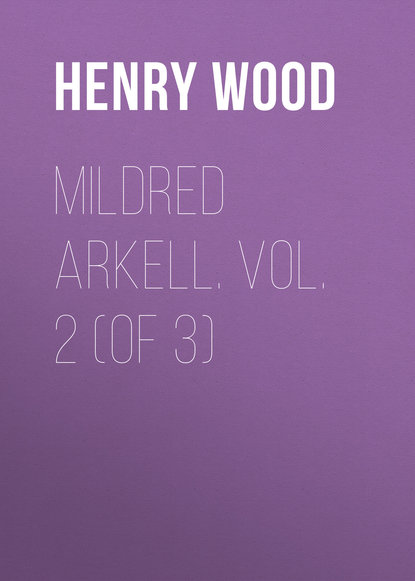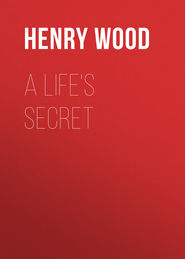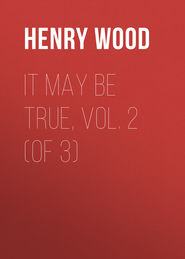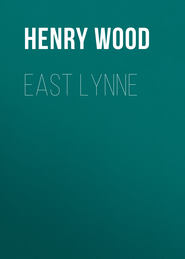По всем вопросам обращайтесь на: info@litportal.ru
(©) 2003-2024.
✖
Mildred Arkell. Vol. 2 (of 3)
Настройки чтения
Размер шрифта
Высота строк
Поля
"Is that all?" exclaimed Mr. Hardcastle, when he had listened, and his tone was one of indifference. "Oh, he will soon be back. If he is not in, in time for dinner, Mrs. Dundyke, you can go down with us. Don't alarm yourself."
"But have you not seen him?—not been with him?" urged poor Mrs. Dundyke.
"I have never seen him since breakfast."
"We thought you might have walked round by the shore to join him, as you saw this morning where the boat was making for," remarked Mrs. Hardcastle.
He turned savagely upon her, his eyes glaring like a tiger's.
"No, madam," he said, with concentrated passion, "none save a fool would undertake such a walk to-day. I have been in the town, executing various commissions," he added, changing his tone, and addressing Mrs. Dundyke, "and a pretty accident I had nearly met with: in avoiding a restive horse on the dusty quays, I slipped down, with my face on some flint stones."
Mrs. Dundyke would not go down to dinner, but Mrs. Hardcastle fetched her into her own room afterwards, and ordered tea brought up, and they were both very kind to her, buoying up her spirits, and laughing at her fears. Her husband had only lost his way, they urged, and would be home fast enough by morning—a rare joke they would have with him about running away, when he did come.
It was eleven o'clock when Mrs. Dundyke wished them good night, and retired to her chamber, feeling like one more dead than alive. It is probable that few of us can form any adequate idea of her sensations. But for that horrible, mysterious dread, which seemed to have come upon her without sufficient cause, the mere absence of her husband ought not so very much to have alarmed her. She felt a conviction, sure and certain, that some dreadful fate had overtaken him; and, in that dread torture of suspense, she would have given her own life up the next moment, oh, how willingly, to see him return.
She stood at the open window of her room, leaning far out of it, hoping to see him come round the corner of the street, (stay, not so much hoping as wishing,) foot-sore and travel-worn, having lost his way and found it again. She wondered whether anyone was still up, to let him in, if he did come; if not, she would steal downstairs herself, and work at the door fastenings until she undid them. It was with great difficulty, exercising the very utmost self-control, that she stopped where she was, that she did not go out into the streets, searching for him.
While thus thinking, Mrs. Dundyke became aware that strange sounds were proceeding from the next room, though not at first had she heeded them. A fearful quarrel appeared to be taking place between Mr. and Mrs. Hardcastle, and Mrs. Dundyke drew back and closed her window in tremor. Its substance she could not hear, did not wish to hear; but wild sobs and reproaches seemed to come from the lady, and sharp words, not unmixed with oaths, from the gentleman. Twice Mrs. Dundyke heard her husband's name mentioned, or her own ("Dundyke"); and the quarrel seemed to have reference to him. One sentence of Mr. Hardcastle's came distinctly on her ear, apparently in answer to some threat or reproach; it was to the effect that Mrs. Hardcastle might leave him as soon as she pleased; might take her departure then, in the midnight hour. After awhile the anger appeared to subside, silence supervened, and Mrs. Dundyke watched through the live-long night. But her husband did not come.
With the morning Mrs. Hardcastle came to her. She said they had received letters which must cause them to depart for Genoa, where they found their remitted money had really been sent.
"But, ma'am," urged poor Mrs. Dundyke, "surely Mr. Hardcastle will not go and leave me alone in this dreadful uncertainty!"
"He intends to stay until the evening; he will not leave you a moment earlier than he is obliged. Perhaps your husband will make his appearance this morning."
In the course of the morning, Mr. Hardcastle went with the two boatmen to the place where they had landed Mr. Dundyke on the previous day, and a gentleman named by the proprietor of the hotel accompanied them; but not the slightest trace of him could be found, though some hours were spent in exploring. In the evening, by the six o'clock diligence, Mr. and Mrs. Hardcastle left Geneva, the former handing to Mrs. Dundyke an order upon the house in London, Hardcastle and Co., for the twenty pounds he had borrowed of her husband. He regretted, he said, his inability to furnish her, then, with any funds she might require, but he had barely sufficient to carry himself and wife to Genoa. If Mrs. Dundyke approved, he would, with the greatest pleasure, forward from that city any sum she chose to name; for, being known there, his credit was unlimited. Mrs. Dundyke declined his offer, with thanks: she reflected that, if her husband returned, he would have his money with him; and in the event of his mysterious absence being prolonged, she might as well write home for money as borrow it from Mr. Hardcastle at Genoa. She wondered, but did not presume to ask, how he had procured funds for his own journey, and to discharge his hotel bill, which he paid before starting.
"Keep up your spirits, Mrs. Dundyke," he cheeringly said as he shook hands with her at parting. "Depend upon it, your husband will come home, and bring some good reason for his absence; and if it were not that I am compelled—compelled by business—to go on to Genoa, I would not leave you."
She sat down as if some cold shiver had seized upon her heart. It was in her own room that this farewell was spoken; and in that one moment, as he released her hand, and his peculiar eyes rested on her in the parting, and then were lost sight of, it flashed into her mind where she had seen those eyes before. They were the eyes she had once so shrunk from at Westerbury; at least, they bore the same expression—Benjamin Carr's.
Mrs. Dundyke's pulses quickened, and she clasped her hands. For one single moment a doubt arose to her whether Mr. Hardcastle could be Mr. Hardcastle—whether he was not an impostor, Benjamin Carr, or any other, travelling under a false name; and a whole host of trifling incidents, puzzles to her hitherto, arose to her mind as if in confirmation. But the doubt did not last. That he was really anybody but the great Mr. Hardcastle—head, under his uncle, of the great house of Hardcastle and Co.—she did not believe. As to the resemblance in the eyes to those of Benjamin Carr, she concluded it must be accidental; and of Benjamin Carr's features she retained no recollection. She opened the order he had given her to receive the twenty pounds, and found it was signed "B. Hardcastle:" no Christian name in full. Mrs. Dundyke dismissed all doubts from her memory, and continued to believe implicitly in Mr. Hardcastle.
It was, perhaps, a somewhat curious coincidence—at least, you may deem it so, as events go on—that on this same evening an English clergyman should arrive at Geneva, and put up at the hotel. It was the Rev. Wheeler Prattleton, who was visiting Switzerland in pursuance of his intentions (as you once heard mention of), accompanied by his eldest daughter. The strange disappearance of Mr. Dundyke had caused some stir in the hotel, and the clergyman was told of it.
"It is an uncommon name, papa—Dundyke," observed Miss Prattleton. "Do you think it can be the Dundykes who are relatives of Mrs. Arkell's?"
"What Dundykes?" returned Mr. Prattleton, his memory on these points not so retentive as his daughter's. "Has Mrs. Arkell relatives of the name?"
"Oh, papa, you forget. Mrs. Arkell's sister is a Mrs. Dundyke. I have often heard Travice Arkell speak of her; he calls her Aunt Betsey. They live in London."
"We will ascertain, Mary," said Mr. Prattleton, his sympathies aroused. "If this lady should prove to be Mrs. Arkell's sister, we must do all we can for her."
It was very soon ascertained, for the clergyman at once sent up his card, and requested an interview with Mrs. Dundyke. Mr. Prattleton threw himself completely into the affair, and became almost painfully interested in it. He believed, as did all others, that nothing serious had occurred, but that from some unaccountable cause Mr. Dundyke remained absent—perhaps from temporary illness or accident; and every hour, as the days went on, was his return looked for. Mary Prattleton had the room vacated by the Hardcastles, Mr. Prattleton had one on the same floor; and their presence was of the very greatest comfort to poor, lonely, bereaved Mrs. Dundyke.
"But have you not seen him?—not been with him?" urged poor Mrs. Dundyke.
"I have never seen him since breakfast."
"We thought you might have walked round by the shore to join him, as you saw this morning where the boat was making for," remarked Mrs. Hardcastle.
He turned savagely upon her, his eyes glaring like a tiger's.
"No, madam," he said, with concentrated passion, "none save a fool would undertake such a walk to-day. I have been in the town, executing various commissions," he added, changing his tone, and addressing Mrs. Dundyke, "and a pretty accident I had nearly met with: in avoiding a restive horse on the dusty quays, I slipped down, with my face on some flint stones."
Mrs. Dundyke would not go down to dinner, but Mrs. Hardcastle fetched her into her own room afterwards, and ordered tea brought up, and they were both very kind to her, buoying up her spirits, and laughing at her fears. Her husband had only lost his way, they urged, and would be home fast enough by morning—a rare joke they would have with him about running away, when he did come.
It was eleven o'clock when Mrs. Dundyke wished them good night, and retired to her chamber, feeling like one more dead than alive. It is probable that few of us can form any adequate idea of her sensations. But for that horrible, mysterious dread, which seemed to have come upon her without sufficient cause, the mere absence of her husband ought not so very much to have alarmed her. She felt a conviction, sure and certain, that some dreadful fate had overtaken him; and, in that dread torture of suspense, she would have given her own life up the next moment, oh, how willingly, to see him return.
She stood at the open window of her room, leaning far out of it, hoping to see him come round the corner of the street, (stay, not so much hoping as wishing,) foot-sore and travel-worn, having lost his way and found it again. She wondered whether anyone was still up, to let him in, if he did come; if not, she would steal downstairs herself, and work at the door fastenings until she undid them. It was with great difficulty, exercising the very utmost self-control, that she stopped where she was, that she did not go out into the streets, searching for him.
While thus thinking, Mrs. Dundyke became aware that strange sounds were proceeding from the next room, though not at first had she heeded them. A fearful quarrel appeared to be taking place between Mr. and Mrs. Hardcastle, and Mrs. Dundyke drew back and closed her window in tremor. Its substance she could not hear, did not wish to hear; but wild sobs and reproaches seemed to come from the lady, and sharp words, not unmixed with oaths, from the gentleman. Twice Mrs. Dundyke heard her husband's name mentioned, or her own ("Dundyke"); and the quarrel seemed to have reference to him. One sentence of Mr. Hardcastle's came distinctly on her ear, apparently in answer to some threat or reproach; it was to the effect that Mrs. Hardcastle might leave him as soon as she pleased; might take her departure then, in the midnight hour. After awhile the anger appeared to subside, silence supervened, and Mrs. Dundyke watched through the live-long night. But her husband did not come.
With the morning Mrs. Hardcastle came to her. She said they had received letters which must cause them to depart for Genoa, where they found their remitted money had really been sent.
"But, ma'am," urged poor Mrs. Dundyke, "surely Mr. Hardcastle will not go and leave me alone in this dreadful uncertainty!"
"He intends to stay until the evening; he will not leave you a moment earlier than he is obliged. Perhaps your husband will make his appearance this morning."
In the course of the morning, Mr. Hardcastle went with the two boatmen to the place where they had landed Mr. Dundyke on the previous day, and a gentleman named by the proprietor of the hotel accompanied them; but not the slightest trace of him could be found, though some hours were spent in exploring. In the evening, by the six o'clock diligence, Mr. and Mrs. Hardcastle left Geneva, the former handing to Mrs. Dundyke an order upon the house in London, Hardcastle and Co., for the twenty pounds he had borrowed of her husband. He regretted, he said, his inability to furnish her, then, with any funds she might require, but he had barely sufficient to carry himself and wife to Genoa. If Mrs. Dundyke approved, he would, with the greatest pleasure, forward from that city any sum she chose to name; for, being known there, his credit was unlimited. Mrs. Dundyke declined his offer, with thanks: she reflected that, if her husband returned, he would have his money with him; and in the event of his mysterious absence being prolonged, she might as well write home for money as borrow it from Mr. Hardcastle at Genoa. She wondered, but did not presume to ask, how he had procured funds for his own journey, and to discharge his hotel bill, which he paid before starting.
"Keep up your spirits, Mrs. Dundyke," he cheeringly said as he shook hands with her at parting. "Depend upon it, your husband will come home, and bring some good reason for his absence; and if it were not that I am compelled—compelled by business—to go on to Genoa, I would not leave you."
She sat down as if some cold shiver had seized upon her heart. It was in her own room that this farewell was spoken; and in that one moment, as he released her hand, and his peculiar eyes rested on her in the parting, and then were lost sight of, it flashed into her mind where she had seen those eyes before. They were the eyes she had once so shrunk from at Westerbury; at least, they bore the same expression—Benjamin Carr's.
Mrs. Dundyke's pulses quickened, and she clasped her hands. For one single moment a doubt arose to her whether Mr. Hardcastle could be Mr. Hardcastle—whether he was not an impostor, Benjamin Carr, or any other, travelling under a false name; and a whole host of trifling incidents, puzzles to her hitherto, arose to her mind as if in confirmation. But the doubt did not last. That he was really anybody but the great Mr. Hardcastle—head, under his uncle, of the great house of Hardcastle and Co.—she did not believe. As to the resemblance in the eyes to those of Benjamin Carr, she concluded it must be accidental; and of Benjamin Carr's features she retained no recollection. She opened the order he had given her to receive the twenty pounds, and found it was signed "B. Hardcastle:" no Christian name in full. Mrs. Dundyke dismissed all doubts from her memory, and continued to believe implicitly in Mr. Hardcastle.
It was, perhaps, a somewhat curious coincidence—at least, you may deem it so, as events go on—that on this same evening an English clergyman should arrive at Geneva, and put up at the hotel. It was the Rev. Wheeler Prattleton, who was visiting Switzerland in pursuance of his intentions (as you once heard mention of), accompanied by his eldest daughter. The strange disappearance of Mr. Dundyke had caused some stir in the hotel, and the clergyman was told of it.
"It is an uncommon name, papa—Dundyke," observed Miss Prattleton. "Do you think it can be the Dundykes who are relatives of Mrs. Arkell's?"
"What Dundykes?" returned Mr. Prattleton, his memory on these points not so retentive as his daughter's. "Has Mrs. Arkell relatives of the name?"
"Oh, papa, you forget. Mrs. Arkell's sister is a Mrs. Dundyke. I have often heard Travice Arkell speak of her; he calls her Aunt Betsey. They live in London."
"We will ascertain, Mary," said Mr. Prattleton, his sympathies aroused. "If this lady should prove to be Mrs. Arkell's sister, we must do all we can for her."
It was very soon ascertained, for the clergyman at once sent up his card, and requested an interview with Mrs. Dundyke. Mr. Prattleton threw himself completely into the affair, and became almost painfully interested in it. He believed, as did all others, that nothing serious had occurred, but that from some unaccountable cause Mr. Dundyke remained absent—perhaps from temporary illness or accident; and every hour, as the days went on, was his return looked for. Mary Prattleton had the room vacated by the Hardcastles, Mr. Prattleton had one on the same floor; and their presence was of the very greatest comfort to poor, lonely, bereaved Mrs. Dundyke.











